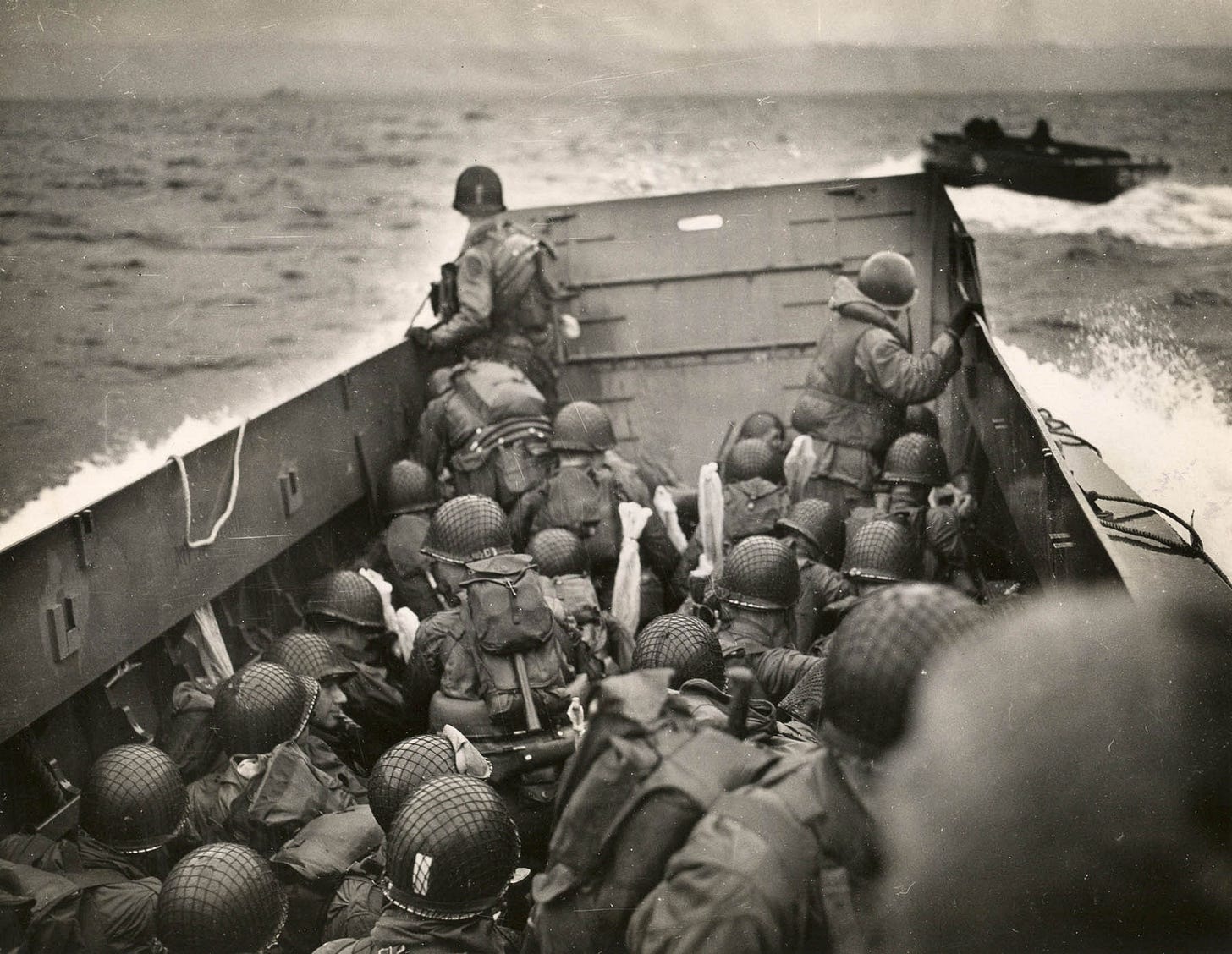
In the early morning hours of June 6, 1944, Americans gathered at churches, county courthouses and local diners waiting on first reports of the Allied invasion of France, or as Supreme Allied Commander Gen. Dwight D. Eisenhower put it, “the Great Crusade” to eliminate “Nazi tyranny over the oppressed peoples of Europe.”
While Americans were anxiously congregated around radios back home, half a world away young men, some were just boys out of high school, had already jumped out of planes while taking relentless anti-aircraft flak and still others disembarked naval landing craft to wade onto shore under withering enemy machine gun fire, and incoming deadly mortar rounds.
The start of the Great Crusade was bloody, scary, tough and uncertain. One of those young men that landed on Utah Beach on D-Day was U.S. Army soldier Ornel “Runt” Arends. Born and raised in Little Rock, Iowa, Runt had enlisted in the Army in 1942, trained with the 610th Tank Destroyer battalion and before D-Day was assigned to the 42nd Field Artillery battalion.
Arends’ artillery unit was assigned to land on a sector of Utah beach called “Uncle Red” one of two designated areas where the Army’s famed 4th Infantry Division would establish a beachhead on D-Day. Arends’ mission on D-Day was to serve as an RTO (radio telephone operator) relaying messages to and from higher headquarters for his battalion commander who was directing field artillery fires onto German fighting positions further inland.
Three weeks after Arends landed on Utah Beach, on June 25, 1944, he would find himself wounded in the Battle for Cherbourg and was, according to Army surgeons, filled with “enough shrapnel to fill a gallon bucket.” The German shelling at Cherbourg was so intense that he laid on the battlefield from 10 a.m. until 4.p.m that afternoon before he could be rescued. The Allies seized the strategic port city of Cherbourg on June 26, and the Nazis formally surrendered the city on June 29. Arends would eventually be evacuated to an Army hospital in England where he recovered for the next three months and later returned to duty until the end of World War II.
Arends was awarded the Purple Heart and four Bronze Stars for his service to our nation. Eventually he settled down in Ellsworth, Minnesota where he continued service to his community as a law enforcement officer and raised his family.
Last summer, my family and I had the honor to visit Normandy and the sector of Utah beach where Runt and his fellow warriors came ashore. The first observation I made after clearing the sand berms and looking out to sea is the enormity of it all – the beach, the ocean, the undertaking…the sacrifice. We had the opportunity to follow the boot prints washed away a long time ago, to touch the sand, stand in the German fighting positions, and look out over the horizon in order to more fully understand the magnitude of the effort.
We as a nation are blessed that such men lived and fought to protect our homeland. We as a nation are even more humbled that such men would willingly sacrifice their lives to defend the world from attacks on mankind’s freedom and liberty. These young men, in the prime of their lives, willingly offered themselves up to be a part of something infinitely larger than themselves – to provide for the defense of their nation and to break the grip of Nazi tyranny over the European continent.
On the 80th anniversary of the D-Day invasion let us rededicate ourselves to honoring the sacrifice of the fallen for defending our liberty. Eighty years ago, those young men were willing to fight and die for our freedom – today it is incumbent upon us to ensure we fulfill the promise of their sacrifice.
Joel Arends has served 30 years in the United States Army, first enlisting as private in the infantry and later as a commissioned officer. Arends served in Iraq with the Army’s 1stCavalry Division as an infantry platoon leader. Today, Lt. Col. Arends currently serves as the battalion commander of the 1-330thInfantry Regiment in the United States Army Reserve. Arends also serves his community as a county commissioner in Lincoln County, South Dakota.













When we visited the cemetery at Normandy we spoke with a man in a wheelchair being assisted by his granddaughter He was a survivor of the Longest Day. We had been struck by the young ages of all those named on the grave markers., and mentioned that to our new acquaintance. He looked at us, tears running down his cheeks, and said, "we were all so young." We shed a tear, also..
Nice article Joel.